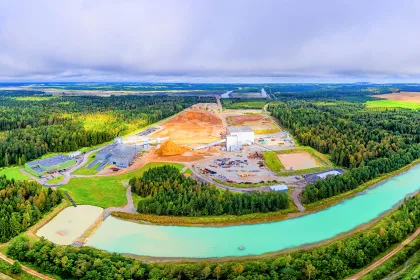Climate change is a clear and present threat to both people and the planet. We take a look at the COP26 conference in Glasgow, and what agreements have been made so far.
THE SUMMIT OF THE CENTURY
There is no doubt that the climate crisis represents the largest global scale problem that we face as part of the planet’s ecosystem.
For a length of time, human activity and growth has continued without consideration of the planetary costs, having moved ahead through the past century with an arguably impetuous attitude, and without thought to the fact that there is no Planet B.
We have been aware of climate change for a long time. In 1896, Swedish scientist Svante Arrhenius predicted that changes in carbon dioxide (CO2) levels in the atmosphere could alter Earth’s surface temperatures through the greenhouse effect, and that was 125 years ago. Further down the line, the likes of English engineer Guy Callendar (in 1938) and Canadian physicist Gilbert Plass each understood and worked on highlighting the negative impacts of CO2 increases in the atmosphere, with the latter formulating the Carbon Dioxide Theory of Climate Change in 1956.
Today, we have reams of data showing the worsening climate crisis and the impact of change on the environment. The burning of fossil fuels releases greenhouse gases, the majority of which is CO2, acting as atmospheric insulation, trapping the sun’s heat and causing a planet-wide temperature increase. Over the past 70 years especially, the dramatic increase in CO2 emissions decade on decade has substantially accelerated multiple interconnected issues that heavily and negatively impact the natural world, as well as human lives.
COP26
To answer this pressing issue, countries and governments around the world have come together this month at the 26th United Nations Climate Change Conference (COP26) in Glasgow, UK.
Highlights of the summit so far include over 100 world leaders promising to end and reverse deforestation by 2030; this has been the first substantial deal of the conference at the time of writing, although experts warned that previous promises of the same kind “failed to slow deforestation at all” and that these promises need to be kept. UK Prime Minister Boris Johnson said “more leaders than ever before”, 110 to be exact, agreed to the “landmark” commitment. As forests absorb substantial amounts of CO2, the agreement aims to combat deforestation as one of the major contributors to climate change.
The countries that have signed the pledge, including the UK, the US, Canada, Brazil, Russia, China, the Democratic Republic of the Congo (DRC), and Indonesia, account for around 85 percent of the world’s forests. This promise comes with almost £14 billion in public and private funds, that will see developing countries restore damaged land, combat wildfires and support local and indigenous communities. £1.1 billion of this will also be established to safeguard the tropical rainforest in the Congo Basin, the second largest on the globe.
28 of these countries also pledged to eliminate deforestation from global food and agricultural product trade, such as palm oil, soya and cocoa. These are industries in particular that resort to deforestation in order for animals to graze and for crops to grow. Additionally, over 30 of the world’s largest financial companies have pledged to cease investment activities linked to deforestation.
In the Middle East, Saudi Arabia pledged to reach net zero by 2060 prior to the event. As the top oil producer in the world, the kingdom unveiled its plan in an announcement made by Crown Prince Mohammed bin Salman Al Saud, during an environment summit only weeks before COP26. However, there has been very little mention of curbing oil production.
As for the role that companies play in the facilitation of a greener future, UK-based firms and financial institutions have been instructed to form and present detailed public plans on how they will move towards a low-carbon future by 2023. This falls in line with the UK’s net-zero target for 2050, and the plans of such companies will be submitted to a panel of experts to ensure they have an impact as opposed to being empty or limited promises.
However, even if implemented, the plans have been criticised as doing too little too late. David Barmes, a Senior Economist at the campaign group Positive Money, stated that the intention behind the plan was positive, yet the financial firms in question are still “pouring billions into environmentally harmful projects”, and that society needs public institutions, rather than bank CEOs, to lead the way and set the standard for delivering green investments.
The strategies presented for 2023 will need to include greenhouse gas reduction targets, as well as detailed steps as to how firms intend to reach these goals.
COP26 will continue until the 12th November 2021, and for many, the summit stands as the best chance for global collaboration towards the environmental betterment of the planet and its people.
































